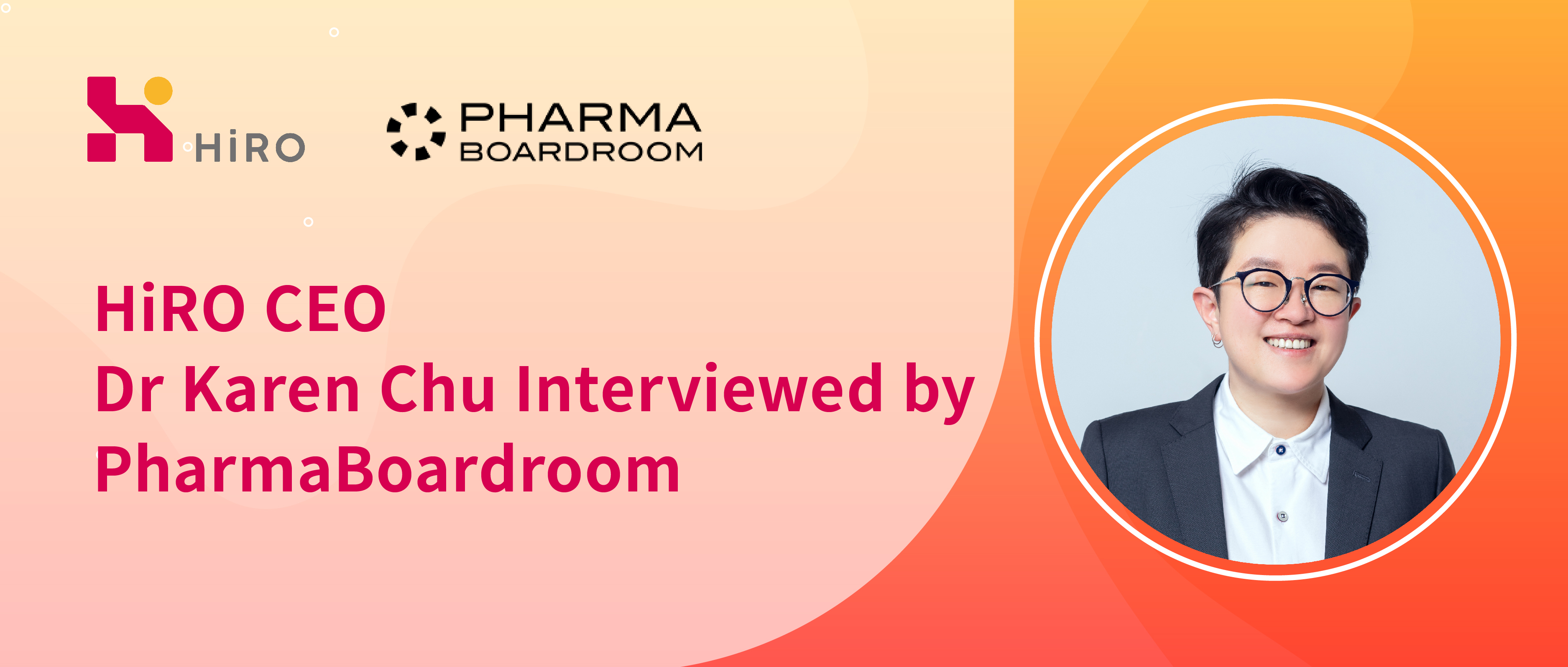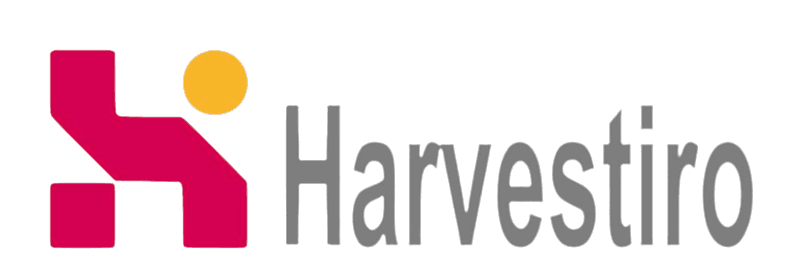HiRO CEO Dr Karen Chu Interviewed by PharmaBoardroom
- Categories:News
- Time of issue:2024-01-03 11:11
- Views:
(Summary description)Harvest Integrated Research Organization (HiRO) is a CRO that serves both Asian biotechs looking to do clinical trials outside of the region, and US and European clients wanting to conduct clinical research in Asia. CEO and founder Karen Chu explains the company’s integrated approach and how it aims to maintain its “boutique” style while undergoing major expansion into Australia, New Zealand, the US, and South Korea. She also discusses the recent surge in clinical trials in the APAC region and the increasing quality of the data generated there.
HiRO CEO Dr Karen Chu Interviewed by PharmaBoardroom
- Categories:News
- Time of issue:2024-01-03 11:11
- Views:

Could you outline your career journey and the opportunity you saw to establish your own clinical research organisation (CRO) in China back in 2020?
I was born in Taiwan but raised in New Jersey and attended Rutgers University for my Doctor of Pharmacy degree, graduating in 2002. New Jersey is home to many pharma companies and there were plenty of opportunities close by, but I instead decided to return to Asia. At that time, the entire Asia-Pacific (APAC) region – especially Mainland China, Taiwan, and South Korea – was booming, including in clinical research.
My first step back in Asia was at a start-up CRO called APEX International in Taipei. I started in a very hands-on position as a medical writer before moving up the ladder between 2002 and 2007 to eventually manage all the company's operations. In 2007 APEX was acquired by one of the world's biggest CROs, Parexel, a very complimentary acquisition whereby APEX added an Asian footprint to Parexel's existing US and Europe operations.
I was with Parexel for another 12 years, taking on various roles in APAC, although my last position was as global clinical operations head, based out of Boston; a role that involved managing around 6,000 clinical operational team members across 54 countries.
In 2019, I left Parexel and returned to Asia, joining a venture capital (VC) fund based in Shanghai, which was investing in biotechs, therapeutics, and some devices in the US, Europe, and in China. Drawing on my experience in the CRO space, the fund decided to invest in a new generation CRO, having noticed that Asian biotechs wanted to do clinical trials in the US and Europe, but were often not able to. We were not able to find such a CRO and so – after a lot of homework – three years ago, we decided to start our own.
The resulting company – Harvest Integrated Research Organization (HiRO) – serves both Asian companies looking to do clinical trials outside of Asia, as well as US and European clients with an interest in conducting clinical trials within Asia. We are smaller and more boutique than the biggest multinational CROs, but still extremely global, AND very nimble.
How inopportune a moment was the COVID-19 pandemic, with the resultant lockdowns and border closures, to start such an internationalised business?
There were both positives and negatives to starting HiRO in 2020. On the negative side, the management team had to pass through an enormity of quarantines, with 14-day minimum quarantines when we travelled in and out of Asia.
However, this period did bring about some big business opportunities for HiRO and helped us realise that trust is a vital currency. In a time when individuals were not able to travel and had to rely on video conferencing tools, our connections and knowledge – whether in terms of approaching the US FDA, enrolling patients in clinical trials within China, or anything else – were invaluable. Therefore, looking back, while it was a somewhat painful period in terms of quarantines, it was also very exciting and filled with opportunity.
Has the uptick in the use of digital and videoconferencing tools post-COVID changed the clinical research industry?
There has definitely been a push to digitalise more information and make it easier to access. Additionally, we are also seeing a more decentralised process emerging whereby face-to-face contact is now seen as a luxury rather than a necessity. Patients and trial participants are more cognizant of how logistically cumbersome some of the face-to-face contact with doctors and pharmacists is, although these visits will continue.
Your company has had some significant recent milestones, including acquisitions in the US and Australia/New Zealand. What is HiRO's primary focus and client base today, and in what direction do you hope this will evolve moving forward?
We started in Asia because we felt that there was more of a need for companies there to go abroad. The next step was the acquisition of PharmaSols, a CRO in Australia and New Zealand, which provides an opportunity for our Asian clients to tap into a location where first-in-human Phase I trials can be set up very quickly and at a very high quality. Thanks to these fundamentals, many of our European and US clients are also looking towards Australia and New Zealand as trial locations.
More recently, we acquired Courante Oncology, a US-based full-service clinical research provider specialising in oncology product development, which has been engaged in oncology trials for almost two decades. With this acquisition HiRO is now able to fully cover Mainland China, Taiwan, the Philippines, Australia, New Zealand, and the US, and we just set up operations in South Korea. This is a fairly large territory which we will continue to expand as we take on more clients entering the clinical phase of their development and looking to conduct larger trials across more markets.
Between 2017 and 2022, the number of clinical trials in APAC grew by around ten percent, far exceeding the overall average growth of 5.3 percent per annum as well as that of other major regions including the US, Europe, and Rest of World. What do you see as the key factors driving this growth?
In terms of fundamental factors, APAC is very densely populated. Additionally, the medical standards are up to par with the US and Europe, which makes it easier for global trials to come in. Moreover, Japan and China still represent exceptionally large pharmaceutical markets which companies across the world want to tap into.
In addition to this, especially post-COVID, many US hospitals and sites are complaining of a lack of resources, including for positions like study coordinators and nurses. This makes enrolment slower and costs increase, creating even more of a push towards Asia. In addition, the exchange rate and geopolitical reason also play apart of shifting trials to Asian countries.
How would you characterise the quality of the trial data being generated in APAC today?
After countries in APAC began to join the International Council for Harmonisation of Technical Requirements for Pharmaceuticals for Human Use (ICH), we have seen a great deal of improvement in terms of the data being generated. What is more, CROs like HiRO which maintain global standards, can really uphold and gatekeep the quality of this data.
The quality levels are sustainable, but issues can be minimized from speaking to US FDA earlier on and ensuring the standard of quality is there. However, if from the outset the data package is intended to meet global standards, there are usually no problems. We have seen around 30-40 percent of data of a NDA package coming from Asia Pacific countries when it is managed correctly.
What are your clients most in need of from a CRO today?
We use the word ‘integrated’ in our company name rather than ‘contract’ or ‘clinical’ because biotechs need an integrated approach. On one level this means that they probably need financing support, with VCs to invest in them, which we can connect them with. We focused on what is important for biotech companies.
Secondly, a small biotech company looking to outsource its Phase I study needs a minimum of seven vendors (labs, CRO, site, logistics, etc). If the biotech evaluates three potential vendors for each role, they are then looking at 21 partners in total and trying to evaluate if, and how, they can work together. HiRO removes this cumbersome need and selects these vendors for our partners, sharing our reasoning as we do.
Thirdly, our consulting arm is very strong, and we are able to work with biotech companies on their clinical development every step of the way, from answering questions such as in which geography they should conduct a Phase I study and what the ethnic makeup of trial participants needs to be. In essence, we aim to be a an integrated and consultative one-stop-shop for our clients.
What is your approach to talent attraction and retention to support this integrated approach?
The majority of my management team has worked in global CROs, pharma and biotechs, and have experience with a variety of different companies and strategies which they can draw from. Additionally, as we acquire other companies, we are bringing in top-notch entrepreneurs that deepen and broaden the services we are able to offer. My team and I are very hands-on and sensitive to the market realities facing start-ups, unlike larger CROs which tend to be more comfortable working with the likes of Big Pharma that are not so resource constrained. Lastly, great talent attracts great talent.
How do you hope to balance international expansion and inorganic growth with maintaining the company's personalised and hands-on culture?
Our aim is not to become as large as the IQVIAs or Parexels of this world, but to remain a mid-sized CRO that is as global as possible. To achieve this, we will heavily rely on our systems and tech for tasks like cleaning data sets and generating table listings while our staff will continue to focus on the things that AI cannot currently do, such as coming up with highly personalised strategies and advising our biotech clients.
What are some of the differences between being the CEO of a smaller company to being a cog within a larger machine in your previous career?
With hindsight, I would probably not have started the company during COVID-19; that was a bit crazy! However, I have found this role to be challenging, but also very satisfying. The CEO of one of our client companies recently requested a meeting with me for advice about leading his biotech company,which I was able to give him, something that probably would not have occurred in my global corporate role and which I found extremely rewarding. The speed of moving things forward is phenomenal and we often can see a direct impact of our decisions in a small company.
What do you see as the main benefits of partnering with a company like HiRO?
The benefit of partnering with HiRO is that we really care about our track record. As we are building the company right now, in real time, we care about each milestone and every piece of consulting work that we undertake. Hopefully, we are able to grow in tandem with our biotech clients. They are on their way to developing blockbuster drugs and we are on the right track to becoming a blockbuster company. HiRO is a company that understands the needs of biotechs, including their capital constraints, and is best placed to help them develop. I anticipate that we will become even more global in the coming years, while remaining personable and most importantly accountable in everything we do.
Link to the interview: https://pharmaboardroom.com/interviews/karen-chu-ceo-harvest-integrated-research-organization-hiro/
搜索

Tel:+86 21 62191220
Email :info@harvestiro.com
Add:
Mainland China
▪ Shanghai: 33C2, Zhongyi Building, No. 580 Nanjing West Road,
Shanghai
▪ Beijing: Room 1203B-1204A, China Life Tower, No.16 Chaoyangmen
Wai Street, Chaoyang District, Beijing
Taiwan
▪ 3F-9, No 510, Sec 5, Zhongxiao E. Rd, Taipei 110058
Australia/New Zealand
▪ Level 1, The Levy Building, 20 Customs Street East Auckland, 1010,
New Zealand
Copyright © 2022 Harvest Integrated Research Organization 沪ICP备2021009006号
-
-
-
Contact information
Service hours:9:00 — 18:00
Contact number:
-

